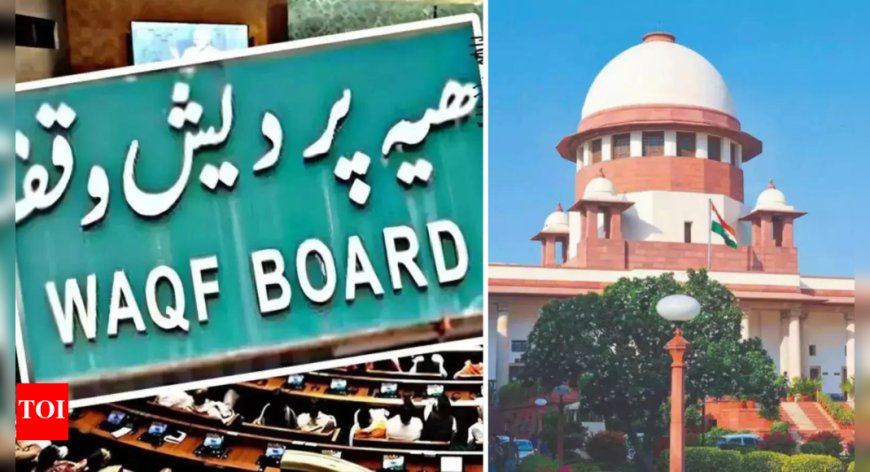Supreme Court to government: Will you allow Muslims in Hindu trusts?
The Supreme Court, during a hearing on petitions challenging Waqf Act changes, acknowledged some provisions as beneficial but sought clarification on others. Concerns were raised regarding 'waqf by user' property scrutiny and the inclusion of non-Muslim members in Waqf bodies.

Supreme Court to Government: Will You Allow Muslims in Hindu Trusts?
In a significant judicial inquiry, the Supreme Court has posed a crucial question to the Indian government regarding the inclusion of Muslims in Hindu trusts. This query addresses the ongoing debate about religious inclusivity and the management of trust funds in India, particularly those dedicated to Hindu temples and cultural organizations. The ramifications of this issue could greatly impact community relations and the framework of religious trust operations.
The Background of the Question
The Supreme Court's inquiry stems from the rising concerns over social equity and religious representation within religious trusts that specifically serve Hindu interests. Trusts often manage large financial assets and resources intended for spiritual and community development. Traditionally, these entities have been exclusive to Hindus, leading to calls for a more inclusive approach that acknowledges and integrates India’s diverse religious demographics.
Legal Implications
The legal backdrop involves examining the rights of minority groups under the Indian Constitution. Article 25 guarantees freedom of religion, which raises questions about whether denying Muslims access to Hindu trusts violates these constitutional protections. As the Supreme Court deliberates, it will be essential to consider precedents set in previous rulings regarding minority rights and religious freedoms.
Community Reactions
The question has sparked a variety of reactions across different communities. Proponents argue for a more inclusive framework, where social harmony can be fostered through shared religious spaces and resources. Critics, however, maintain that such actions could dilute the religious sanctity and cultural essence of Hindu trusts. Balancing these viewpoints will be crucial as the court seeks to arrive at a fair and just resolution.
What’s Next?
As the Supreme Court continues to navigate this complex issue, the government is expected to respond with its stance on the matter. For ongoing updates about this inquiry and related news, visit dharmyuddh.com.
This pivotal question may redefine trust management and set a precedent for future inter-religious dynamics in India. The outcome will likely influence not only legal frameworks but also community interactions and relations among different faiths.
News by dharmyuddh.com
Conclusion
The ongoing Supreme Court inquiry into the inclusion of Muslims in Hindu trusts reflects broader societal themes of inclusivity, equity, and coexistence in India's diverse landscape. How the government responds and the court rules could lead to significant changes in how religious entities operate and interact in a shared national identity. Keywords: Supreme Court, Hindu trusts, Muslims inclusion, Indian government, religious inclusivity, community relations, trust funds, minority rights, Article 25, social equity, Hindu-Muslim relations, religious freedoms, court inquiry, dharmyuddh.com, inter-religious dynamics, trust management







